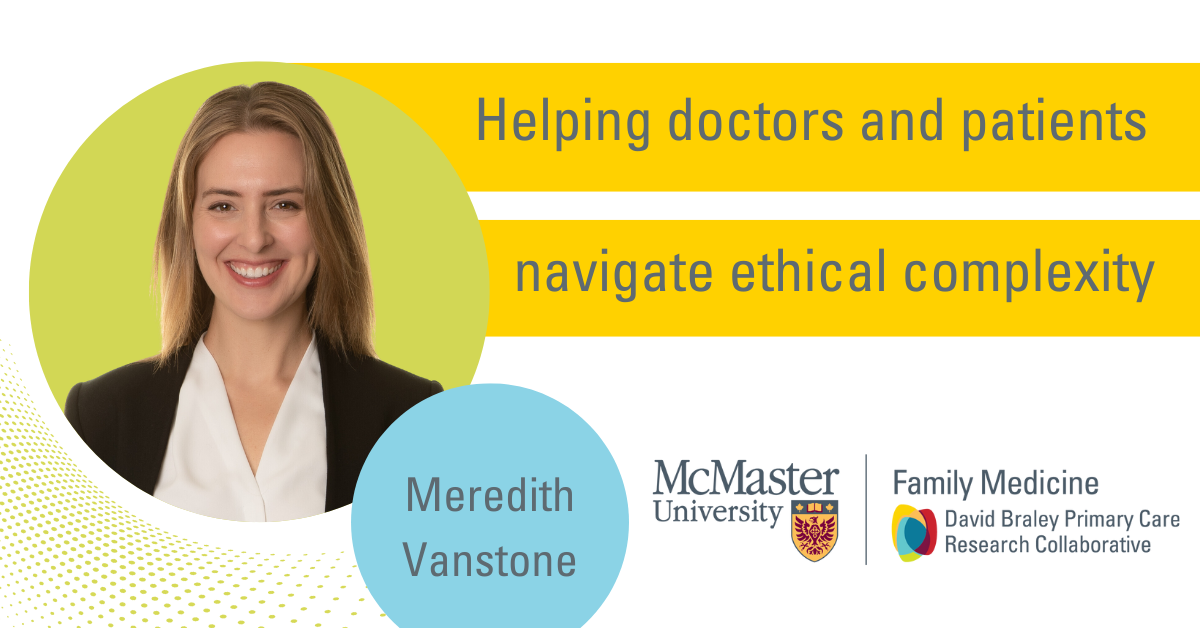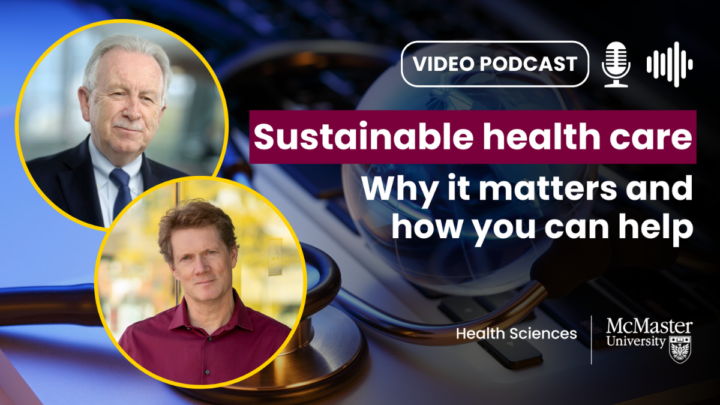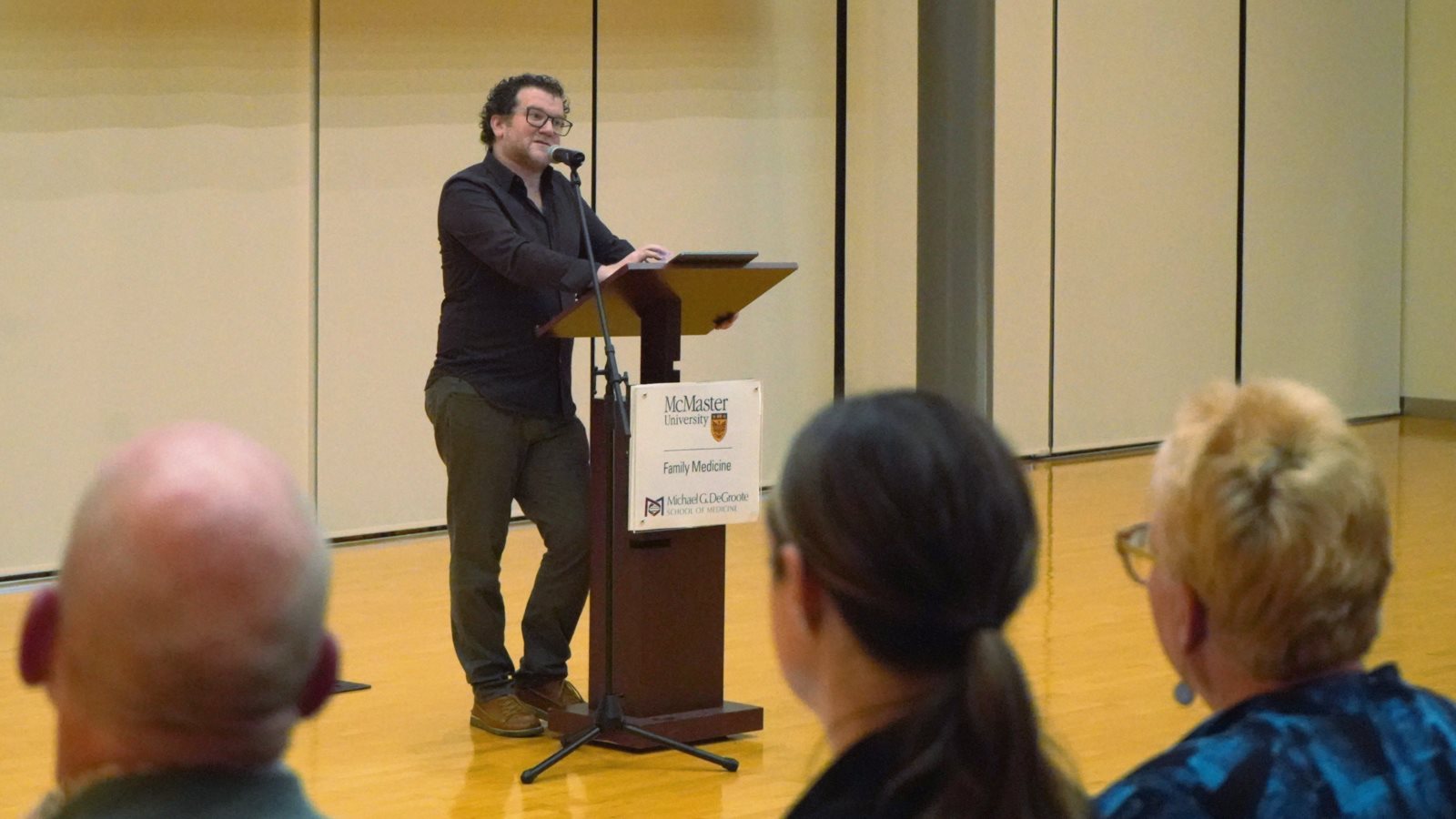Researcher helps doctors and patients work through complex health care decisions

Health-care providers generally make decisions based on strong evidence. But what happens when that evidence doesn’t exist? In that vacuum, clinicians and patients must make ethically complex decisions.
Ethical complexity is “an umbrella term to describe professional encounters which provoke uncertainty, dilemma, or distress,” explains Meredith Vanstone, an associate professor of family medicine at McMaster University and researcher in ethical complexity for primary care.
If evidence is not available, doesn’t provide a clear answer, is incomplete or irrelevant for the patient, then health decisions fall to personal values, circumstances and resources. Clinicians and patients take on some uncertainty because “they need to weigh the risks and benefits, and what those risks and benefits are might not be entirely clear,” says Vanstone. And when we bring those aspects into a bigger picture of economic and societal values, it becomes even more complex.
Where many might feel unease or uncertainty from this complexity, Vanstone feels right at home. She has been conducting research for years in prenatal health care, beginning with non-invasive prenatal testing and more recently related to perinatal cannabis use and health decision-making in pregnancy during the COVID-19 pandemic. “Pregnancy is a special time of life because the health decisions that a pregnant person makes can impact their own life and their future child for a long time”, says Vanstone. There’s also significant ethical complexity in pregnancy, including moral and decisional complexity.
Moral complexity occurs when one must make a health-care decision that impacts other people. Some of Vanstone’s research has focused on cannabis use among pregnant people. Her team found that people who wanted to use cannabis while pregnant did so because they perceived significant benefits from using the substance, such as helping control nausea or anxiety. They had to weigh these benefits against potential for harm to the baby. Many found this difficult, reporting that it was hard to find information about what those harms might be.
“Sometimes moral complexities result from the rights, priorities or wishes of the pregnant person conflicting with those of the baby. In the case of perinatal cannabis use, it’s about benefit to the pregnant person and the potential of harm to the fetus. This is a difficult decision for many people to make because the potential for harm is unclear, but often the benefits are very well known to them,” Vanstone says.
“Decisional complexity is where people — whether it’s the patient or clinician — need to make a decision when the evidence is not available, equivocal or conflicting,” says Vanstone.
During the COVID-19 pandemic, pregnant people had to make many decisions — daily decisions such as whether to eat in restaurants or shop in stores, invite friends over or have someone help take care of the baby. They had to make these decisions against growing evidence that people who are pregnant had more severe outcomes after contracting COVID-19.
These decisions are impacted by available evidence, but that evidence isn’t suited for an individual approach to risk assessment. “We have lots of population-level data about COVID-19 outcomes, but this kind of evidence is hard for an individual to apply to their own circumstances,” says Vanstone, especially when the situation “is constantly evolving, with new evidence, new variants, and new policies arising all the time. This leaves pregnant people having to constantly make very complex risk assessments about even the most ordinary and mundane aspects of their lives.”
Vanstone’s new research couples population-level data with feedback from people who gave birth during the pandemic to understand their decision-making process, help explain the broader trends in data and find a way forward to simplify the complexity for clinicians and patients.
Vanstone has found her research home in family medicine, an area of health care that is filled with complexity and takes a person-centered and holistic approach to each patient. “Primary-care providers are asked to counsel patients about health decisions where there are so many factors to consider,” says Vanstone, such as the patient’s values, finances, resources and circumstances. When patients face health issues without clear resolution, primary-care providers are there to help them manage their symptoms and life over the long term.
With so much complexity, how can clinicians support their patients in making optimal decisions? Vanstone intends to clear the muddy waters with her research by pointing to practical changes to improve health outcomes. For example, training medical learners to identify areas of ethical complexity, structural changes to make more resources available or resources differently available, materials to help clinicians understand where patients get stuck in their trajectory or generating patient-centered perspectives on the right research question to study.
By shedding light on these complex areas of health care, Vanstone hopes that her research can support strong patient-clinician relationships that will lead to better health outcomes.
Vanstone is also an associate member in the department of health research methods, evidence, and impact, a member of the Centre for Health Economics and Policy Analysis (CHEPA) and an adjunct scientist with the McMaster Education Research, Innovation & Theory (MERIT) Program. She collaborates with researchers and clinicians within the Faculty of Health Sciences, as well as across Canada and internationally, and is a mentor to research trainees and clinical colleagues.
News, ResearchRelated News
News Listing

November 8, 2024

October 1, 2024

